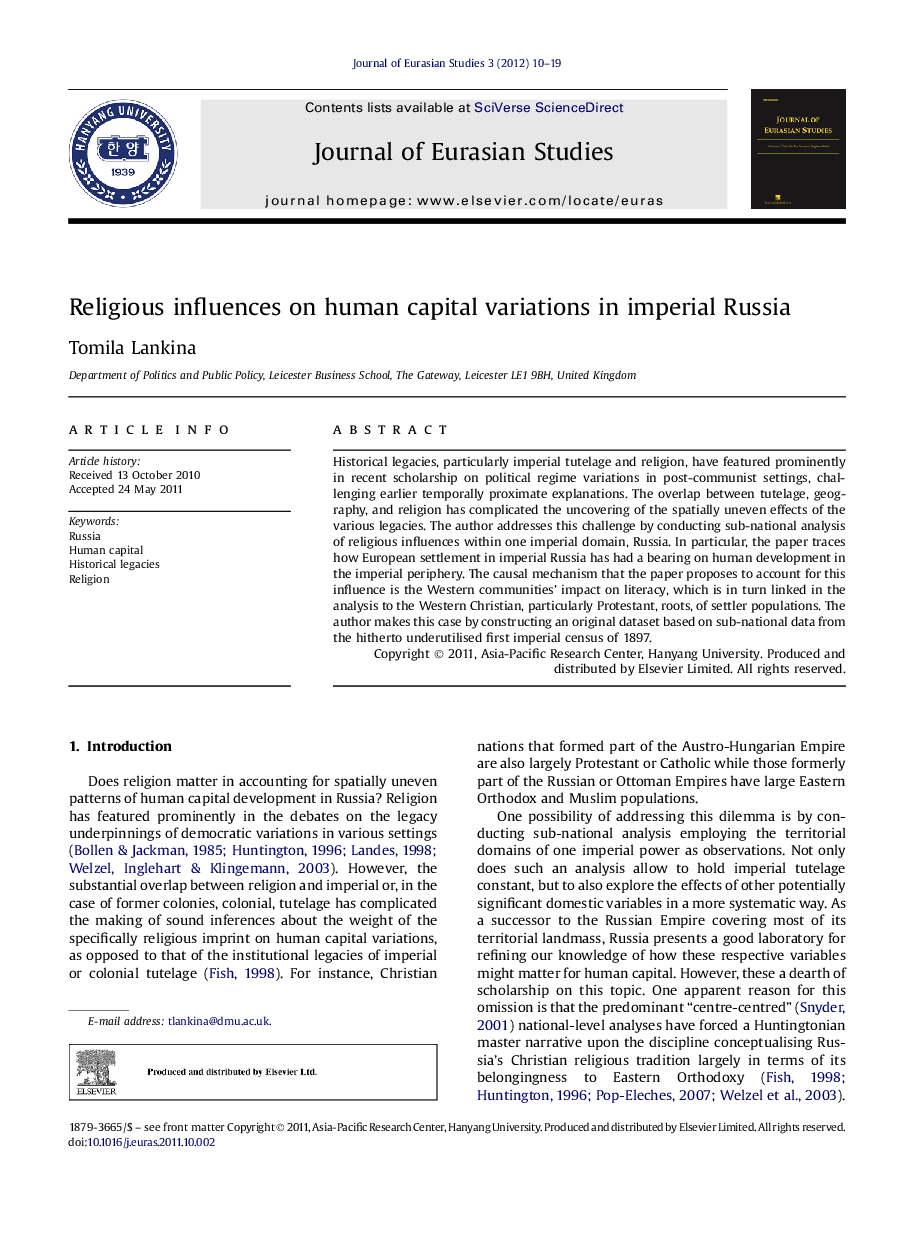| Article ID | Journal | Published Year | Pages | File Type |
|---|---|---|---|---|
| 1127311 | Journal of Eurasian Studies | 2012 | 10 Pages |
Historical legacies, particularly imperial tutelage and religion, have featured prominently in recent scholarship on political regime variations in post-communist settings, challenging earlier temporally proximate explanations. The overlap between tutelage, geography, and religion has complicated the uncovering of the spatially uneven effects of the various legacies. The author addresses this challenge by conducting sub-national analysis of religious influences within one imperial domain, Russia. In particular, the paper traces how European settlement in imperial Russia has had a bearing on human development in the imperial periphery. The causal mechanism that the paper proposes to account for this influence is the Western communities’ impact on literacy, which is in turn linked in the analysis to the Western Christian, particularly Protestant, roots, of settler populations. The author makes this case by constructing an original dataset based on sub-national data from the hitherto underutilised first imperial census of 1897.
